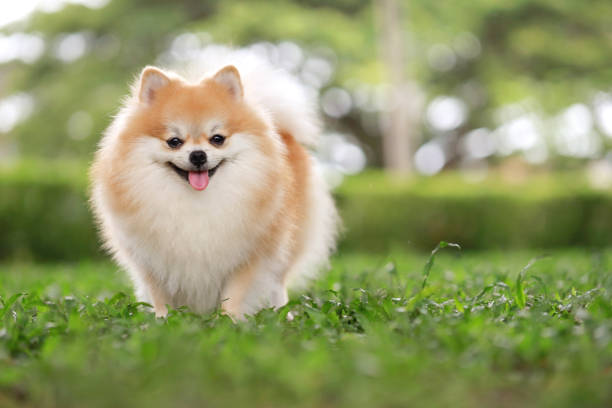Pomeranian

Pomeranians are popular small breed dogs known for their fluffy coats and lively personalities. They have distinct traits and care needs that make them well-suited for various households.
Temperament
Pomeranians are known for their outgoing and friendly nature. They are extremely alert and curious about the world around them, often displaying a much larger personality than their size would suggest. This breed is intelligent and responds well to training, although they can have a stubborn streak. Pomeranians are also known for being very affectionate with their families, often forming strong bonds with their owners. They can be somewhat wary of strangers and are quick to alert their owners about any unusual activities, making them excellent watchdogs. However, their tendency to bark can sometimes need managing through consistent training.
Lifespan
Pomeranians typically enjoy a long lifespan, generally living between 12 to 16 years. With proper care, diet, and regular veterinary check-ups, some Pomeranians can live even longer, enjoying robust health into their senior years.
Care
Caring for a Pomeranian involves several specific considerations:
- Diet: They should be fed high-quality dog food that suits their age, size, and energy level. Due to their small size, careful attention should be paid to their diet to prevent obesity.
- Exercise: Pomeranians are active and need regular exercise to maintain their health. Daily walks and play sessions are important, although their small size means their exercise needs are not extensive.
- Health Care: They should visit the vet regularly for check-ups. Pomeranians are prone to certain health issues like dental problems and luxating patella (slipping kneecap). Regular dental care and monitoring for any signs of joint issues are important.
- Grooming: Their thick, fluffy coat requires regular grooming. Daily brushing is recommended to prevent tangles and mats, and professional grooming every few months helps keep their coat in good condition.
- Training and Socialization: Early socialization and obedience training are crucial for Pomeranians. They can be independent and sometimes difficult to housetrain, but positive reinforcement techniques work well. Training helps manage their barking and ensures they are well-behaved in various situations.
- Companionship: Pomeranians are very sociable and thrive on human interaction. They do not like to be left alone for long periods and can develop separation anxiety if isolated or ignored.